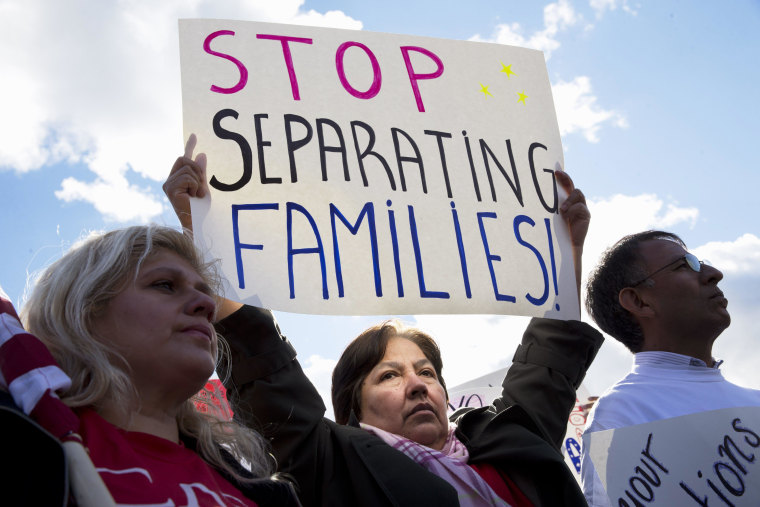The U.S. Supreme Court agreed Tuesday to take up the Obama administration's proposed new immigration plan that could shield more than four million people from deportation.
If the court rules by this spring in favor of the White House, President Obama could begin putting the changes into effect during his final months in office. But if the administration loses, court battles could keep the program on hold for several more years.
The new policy would allow adults here illegally to remain if they have children who are US citizens or lawful permanent residents. It would also expand a program, begun four years ago, that allows young people to remain in the US if they were brought here under age 16, provided they meet educational or military service requirements.
Related: Supreme Court Weighs Taking Up Obama Appeal on Immigration Plan
Both changes have yet to go into effect, blocked by lower court rulings in a lawsuit brought by Texas and 25 other states. They said provisions of the new policy would allow people to get work permits and other benefits, resulting in higher costs of accommodating those who remain in the US.
Texas argued that it would be saddled with millions of dollars in additional expenses to issue drivers licenses to an estimated half a million parents who could be eligible in the state.
Lower federal courts last year agreed and put a hold on the new plan. The rulings said that because the changes were so significant, the administration should have sought public comment first. Failing to do so, they declared, was illegal.
At the heart of the case is this question: is the administration's proposal simply a change in priorities for enforcing immigration law or something more?
The justices also directed lawyers for both sides to address an additional question -- does the policy violate the Constitution's "take care" clause.
That's the provision that requires the president to "take care that the laws be faithfully executed." The challenger states argued in the lower courts that the policy was unconstitutional, because it failed to conform to a rigorous enforcement of immigration laws.

The administration argues that it's a matter of resources -- the government cannot possibly seek to deport more than a small fraction of the estimated 11 million people here illegally, so it is concentrating on terrorists and criminals.
Related: DHS Announces Arrests, Deportations As Groups Scramble to Warn Immigrants
Given that, the government says, there are millions of "hard working people who have become integrated members of American society and who are extremely unlikely to be deported given limited enforcement resources."
The Department of Homeland Security says that for decades, the government has had the authority to defer the deportation of people here illegally and that federal laws allow those here under deferred action to apply for work permits.
For those reasons, the administration argues, the proposed rules are not new regulations and seeking public comment is not required. What's more, Texas decided on its own to allow those here under deferred action to get drivers licenses. And it chose to subsidize the cost of issuing them.
If allowed to stand, the lower court rulings "will allow states to frustrate the federal government's enforcement of the nation's immigration laws," the Justice Department said in urging the court to take the case.
Related: Analysis: Are Latinos Feeling the Optimism Obama Preached in SOTU?
The states have successfully argued in the lower courts that the policy doesn't merely delay or defer removal proceedings. "It expressly grants aliens work-permit eligibility and lawful presence in this country," with access to Social Security, Medicare, tax credits, and unemployment benefits.
As for the administration's argument that Texas could simply decline to offer drivers licenses to those covered by the new rules, the states say the federal government took exactly the opposite view when it said in 2014 that Arizona had to issue them to anyone allowed to stay under deferred action.
The Supreme Court will likely hear the case in April and issue a decision by late June.
